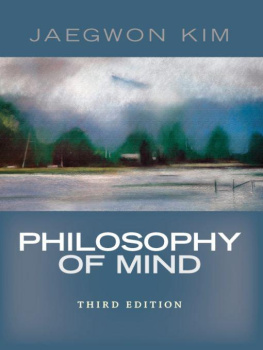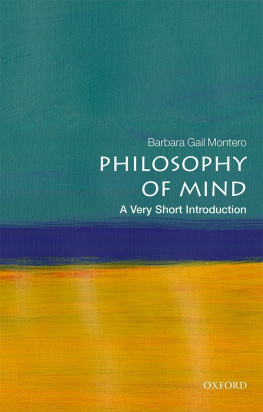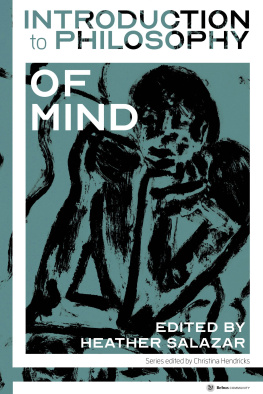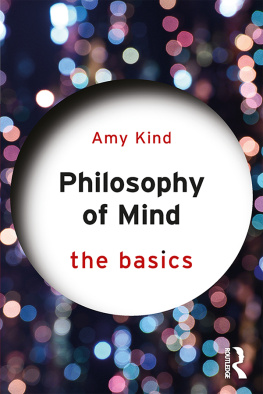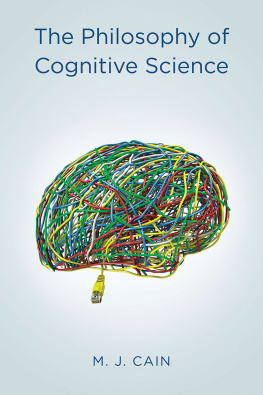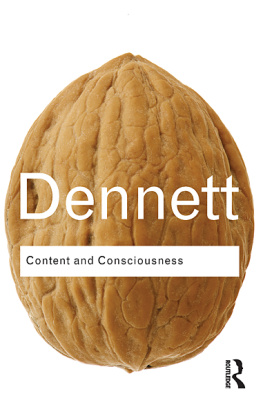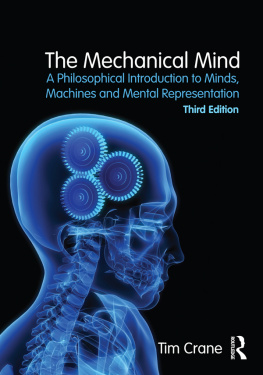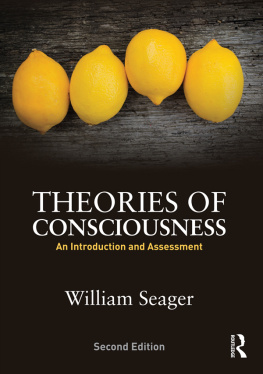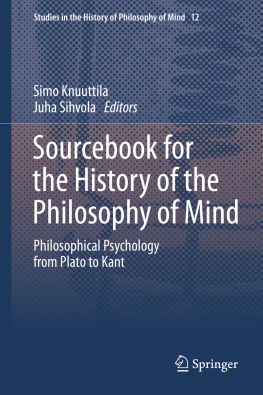Table of Contents
Preface
I t has been five years since the appearance of the second edition. Philosophy of mind remains a vibrant, thriving field, and this is a good time to update and improve the book.
As in the earlier editions, we explore a range of issues in the philosophy of mind, with the mind-body problem as the main focus. The specific issues taken up, and our general approach, belong to what is now called the metaphysics of mind, but our discussion touches on issues in the epistemology and language of mind, and at various points the implications of our considerations for the status of the cognitive and behavioral sciences are explored. However, this is not a book on the philosophy of psychology or cognitive science; nor is it concerned with the analysis of psychological language or concepts. Its principal subject is the nature of mind, its relationship to our bodily nature, and its place in a world that is essentially material.
The main new feature of this edition is an expanded coverage of consciousness: The single chapter on consciousness has been replaced by two chapters, one on the nature of consciousness and the other on its philosophical and scientific status. This reflects the ongoing surge of activity in consciousness studies in both philosophy and the sciences. Arguably, consciousness is now the most actively debated topic in philosophy of mind, and the boom shows no sign of slowing down. Partly to make room for the additional chapter on consciousness, the last chapter of the second edition, on reduction and physicalism, has been dropped, with some of the material absorbed into the second of the two chapters on consciousness.
Most of the remaining chapters have been augmented with new material in various ways. And I have done what I could to improve the readability and clarity of the writing. But the guiding ideas of the previous editions remain the same. In particular, the chapters are intended to be readable as independent essays. Cross-references are provided mainly to help the reader; they should not interrupt narrative flow or continuity. Like most contemporary philosophical works, this book is argument-oriented and presents a point of view. Although it has been written with readers new to the field as the primary audience, it is not a passive, dispassionate survey of the field; where I have my opinions, the reader will know where I stand. Interestingly but perhaps unsurprisingly, it has proved more difficult to write about topics on which I dont have settled views of my own. I have tried, though, to present fair and balanced pictures of alternative approaches and perspectives. I will be pleased if the book serves as a stimulus to the reader to engage with the problems of the mind and try to come to terms with them. That, after all, is what writing books like this is all about.
Chiwook Won, my graduate assistant at Brown, has given me invaluable help, with efficiency, intelligence, and good cheer. I am grateful to Karl Yambert, my former Westview editor, for support and encouragement. Finally, I want to thank the philosophers who responded to Karls request for feedback on the second edition as a course text. Their candid and perceptive comments were most informative and helpful.
Providence, Rhode Island September 2010
CHAPTER 1
Introduction
I n coping with the myriad things and events that come our way at every moment of our waking life, we try to organize them into manageable chunks. We do this by sorting things into groupscategorizing them as rocks, trees, fish, birds, bricks, fires, rains, and countless other kindsand describing them in terms of their properties and features as large or small, tall or short, red or yellow, slow or swift, and so on. A distinction that we almost instinctively apply to just about everything is whether it is a living thing. (It might be a dead bird, but still we know it is the kind of thing that lives, unlike a rock or a celadon vase, which couldnt be dead.) There are exceptions, of course, but it is unusual for us to know what something is without at the same time knowing, or having some ideas about, whether it is a living thing. Another example: When we know a person, we almost always know whether the person is male or female.
The same is true of the distinction between things, or creatures, with a mind and those without a mind. This, too, is one of the most basic contrasts we use in our thoughts about things in the world. Our attitudes toward creatures that are conscious and capable of experiencing sensations like pain and pleasure are importantly different from our attitudes toward things lacking such capacities, mere chunks of matter or insentient plants, as witness the controversies about vegetarianism and scientific experiments involving live animals. And we are apt to regard ourselves as occupying a special and distinctive place in the natural world on account of our particularly highly developed mental capacities and functions, such as the capacity for abstract thoughts, self-consciousness, artistic sensibilities, complex emotions, and a capacity for rational deliberation and action. Much as we admire the miracle of the flora and fauna, we do not think that every living thing has a mind or that we need a psychological theory to understand the life cycles of elms and birches or the behavior and reproductive patterns of amoebas. Except those few of us with certain mystical inclinations, we do not think that members of the plant world are endowed with mentality, and we would exclude many members of the animal kingdom from the mental realm as well. We would not think that planarians and gnats have a mental life that is fit for serious psychological inquiry.
When we come to higher forms of animal life, such as cats, dogs, and chimpanzees, we find it entirely natural to grant them a fairly rich mental life. They are surely conscious in that they experience sensations , like pain, itch, and pleasure; they perceive their surroundings more or less the way we do and use the information so gained to guide their behavior. They also remember thingsthat is, store and use information about their surroundingsand learn from experience, and they certainly appear to have feelings and emotions , such as fear, frustration, and anxiety. We describe their psychological life using the expressions we normally use for fellow human beings: Phoebe is feeling cramped inside the pet carrier and all that traffic noise has made her nervous. The poor thing is dying to be let out.
But are the animals, even the more intelligent ones like horses and dolphins, capable of complex social emotions like embarrassment and shame? Are they capable of forming intentions, engaging in deliberation and making decisions, or performing logical reasoning? When we go down the ladder of animal life to, say, oysters, crabs, and earthworms, we would think that their mental life is considerably impoverished in comparison with that of, say, a domestic cat. Surely these creatures have sensations, we think, for they react in appropriate ways to noxious stimuli, and they have sense organs through which they gain information about what goes on around them and adjust and modify their behavior accordingly. But do they have minds? Are they conscious? Do they have mentality? What is it to have a mind, or mentality?
WHAT IS PHILOSOPHY OF MIND?
Philosophy of mind, like any other field of inquiry, is defined by a group of problems. As we expect, the problems that constitute this field concern mentality and mental properties. What are some of these problems? And how do they differ from the scientific problems about mentality and mental properties, those that psychologists, cognitive scientists, and neuroscientists investigate in their research?

